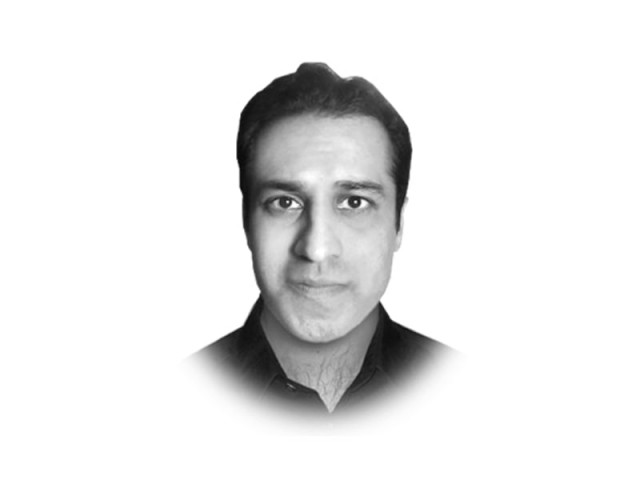Power and popularity
Politics is about getting what you want, not being liked. But being hated has its costs.

Power and popularity
In the United States, Pakistan has gone from being unknown to infamous in a short amount of time. Since 2007, Pakistan has been used as metaphor for a failed state that’s a danger to those in and outside its borders. Unfairly, Pakistan is seen as a Somalia with nukes.
Since last year, the perception of Pakistan in the United States as a lying, extortionist state has become pervasive. To the average American, Pakistan is a country that takes the US taxpayers’ money, helps kill American soldiers and then asks for more money.
Perception — no matter how unfounded it may be — is reality. It influences public and elite sentiment and finds its way into the policymaking process. Power and interest are the ultimate determining factors in international relations, but being held in high esteem by foreign constituencies is power of a softer form — secondary in importance, but power nonetheless.
At this time, negative perception of Pakistan in the United States is being consolidated. And in some circles, the impact might be generational.
The current band of junior officers in the US military — a former Pakistani official noted to me last year — are having their formative experiences in Afghanistan. There they face IED (Improvised Explosive Device) attacks and gunfire from Taliban insurgents that they believe are Pakistan-supported.
The accuracy of the perspectives of US soldiers is immaterial to this discussion. What is most salient is that this is what a preponderance of them believes. This belief will shape their current and future behaviour, which will, in turn, have an impact on Pakistan.
A few decades down the road, some of these men may occupy the position of the chairman of the joint chiefs of staff or head of the CENTCOM — and many more will occupy critical nodes in the military apparatus that will deal with Pakistan.
In the same way that Vietnam has been the frame of reference for recent senior US military officers, the Afghanistan war is likely to be just that for the emerging generation of the US military. Ask these men and they might say that the present war is as much a war in Pakistan as it is one in Afghanistan and the Pakistani military and intelligence services are as much an enemy as al Qaeda and the Taliban are. It’s a clear contrast to the amity that marked Pakistan-US military relations in the 1980s — an amity, the former Pakistani official accurately noted, that helped Pakistan in the post-9/11 period.
What’s happening in the US military is mirroring itself elsewhere in Washington — on Capitol Hill, in the intelligence community and in the think tank world. The net result is that it is increasingly difficult— and perhaps, may soon become impossible — for Pakistan to attain what it wants from the United States: development assistance to combat poverty, trade concessions to boost exports and manufacturing jobs, modern military hardware to deter potential state and non-state threats, acceptance of its nuclear programme and a strategic partnership on regional issues that advances the cause of a secure and prosperous Pakistan.
Now, you, the Pakistani reader are likely as sick of the United States as Americans are fed up with Pakistan. You might say that when the Americans moved into the neighbourhood, it went to hell in a hand basket. And that to just prevent another 9/11 in the United States, Washington has adopted a hyper-aggressive strategy that has helped set Pakistan on fire and wreck its economy. Pakistan, you might argue, has other options. After all, isn’t this destined to be an Asian century? And does not Pakistan have a choice select pair of best friends: China, an emerging superpower and Saudi Arabia, an energy superpower? Heck, ties with Russia and rising Turkey have never been better.
Pakistan is smart to diversify its global partnerships, especially as power in the international system becomes more diffused. But while the American century might be coming to an end, the chapter on America’s status as a superpower is not going to close anytime soon.
Politics is about getting what you want, not being liked. But being hated has its costs.
Published in The Express Tribune, June 22nd, 2012.

















COMMENTS
Comments are moderated and generally will be posted if they are on-topic and not abusive.
For more information, please see our Comments FAQ